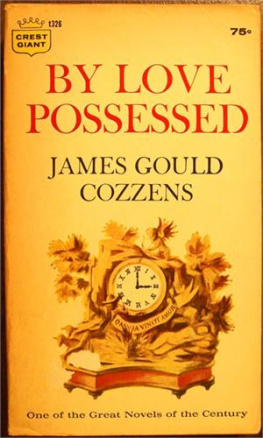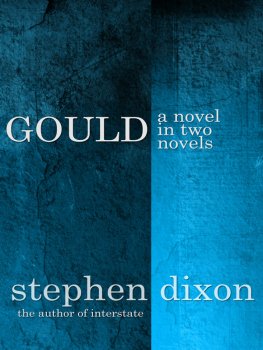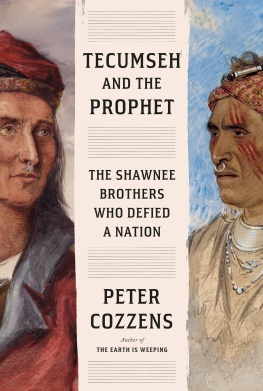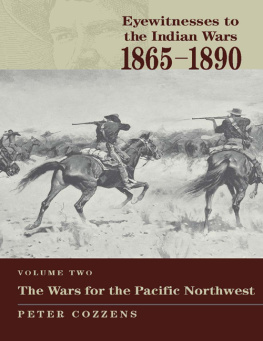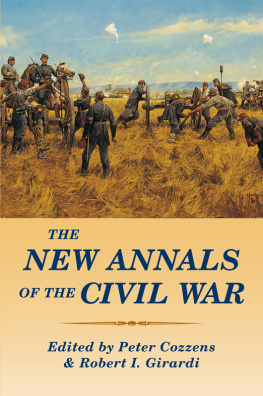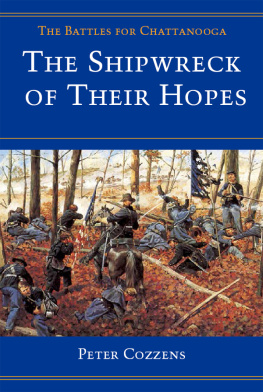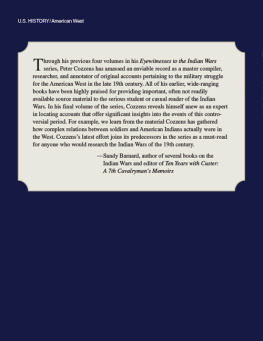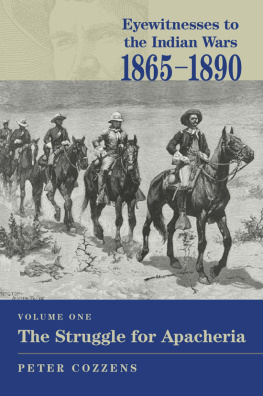James Gould Cozzens - The Just and the Unjust
Here you can read online James Gould Cozzens - The Just and the Unjust full text of the book (entire story) in english for free. Download pdf and epub, get meaning, cover and reviews about this ebook. publisher: Mariner Books, genre: Detective and thriller. Description of the work, (preface) as well as reviews are available. Best literature library LitArk.com created for fans of good reading and offers a wide selection of genres:
Romance novel
Science fiction
Adventure
Detective
Science
History
Home and family
Prose
Art
Politics
Computer
Non-fiction
Religion
Business
Children
Humor
Choose a favorite category and find really read worthwhile books. Enjoy immersion in the world of imagination, feel the emotions of the characters or learn something new for yourself, make an fascinating discovery.

- Book:The Just and the Unjust
- Author:
- Publisher:Mariner Books
- Genre:
- Rating:4 / 5
- Favourites:Add to favourites
- Your mark:
- 80
- 1
- 2
- 3
- 4
- 5
The Just and the Unjust: summary, description and annotation
We offer to read an annotation, description, summary or preface (depends on what the author of the book "The Just and the Unjust" wrote himself). If you haven't found the necessary information about the book — write in the comments, we will try to find it.
The Just and the Unjust — read online for free the complete book (whole text) full work
Below is the text of the book, divided by pages. System saving the place of the last page read, allows you to conveniently read the book "The Just and the Unjust" online for free, without having to search again every time where you left off. Put a bookmark, and you can go to the page where you finished reading at any time.
Font size:
Interval:
Bookmark:
THE JUST AND THE UNJUST
James Gould Cozzens
Certainty is the Mother of Repose;
therefore the Law aims at Certainty.
LORD HARDWICKE
First published 1943
Issued in this edition 1958
To EDWARD G. BIESTER
Cuilibet in arte sua perito est credendum
COKE ON LITTLETON, 125
RECORD
DOCKET ENTRIES
MAY Thirty-First, 1939, Wednesday, Court called at 10 o'clock a.m. Honourable Horace Irwin, President Judge, and Honourable Thomas F. Vredenburgh, Judge, presiding.
Eo die, the District Attorney, Martin M. Bunting, Esq., moves the Court for leave to submit Bill of Indictment Number Nineteen, May Sessions, to the Grand Jury.
Eo die, Leave is granted the District Attorney to submit the above Bill of Indictment Number Nineteen, May Sessions, charging Stanley Howell, Robert Basso, and Roy Leming with Murder, to the Grand Jury.
Eo die, Affidavit that Robert Basso is an Indigent Person filed.
Eo die, Petition of Robert Basso, a destitute person, for Counsel, filed.
And now, to wit, May Thirty-First, 1939, upon consideration of the within Petition, it appearing to the Court that the Deponent, Robert Basso, is wholly destitute of means to employ Counsel and prepare for his defence, the Court hereby appoints George Henderson Stacey, Esq., a Member of the Bar of this County, to represent the said Robert Basso upon trial of the said cause, and to prepare his defence. By the Court. Horace Irwin, P.J.
Eo die, Court adjourned at 5.30 o'clock p.m.
June Twelfth, 1939, Monday, Court called at 10 o'clock a.m., Honourable Horace Irwin, President Judge, and Honourable Thomas F. Vredenburgh, Judge, presiding.
Eo die, the Defendants, Stanley Howell, Robert Basso, and Roy Leming, being present in Open Court, the Defendant Stanley Howell being represented by his Counsel, Henry L. Wurts, Esq., and the Defendant Robert Basso being represented by his Counsel, George Henderson Stacey, Esq., the District Attorney, Martin M. Bunting, Esq., moves the Court for a severance of the trial of these cases and sever the trial of the Case of Roy Leming, one of the Defendants in the Bill of Indictment, and proceed with the trial as against Stanley Howell and Robert Basso, the other Defendants.
Eo die, Henry L. Wurts, Esq., Counsel for the Defendant Stanley Howell, objects to the severance as far as the Defendant Roy Leming is concerned.
Eo die, Objection Overruled. By the Court.
Eo die, George Henderson Stacey, Esq., Counsel for the Defendant Robert Basso, objects to the severance as far as the Defendant Roy Leming is concerned.
Eo die, Objection Overruled. By the Court.
Eo die, A severance having been granted in this case, the Court directs that the trial proceed. The Cause being heard before Honourable Thomas F. Vredenburgh, Judge.
Eo die, the District Attorney, Martin M. Bunting, Esq., begs leave to arraign the Prisoners, whereupon the Court directs that the Prisoners Stanley Howell and Robert Basso be arraigned separately and that the Clerk read the Bill of Indictment.
Eo die, the Clerk reads the Bill, whereupon the Defendant Stanley Howell pleads Not Guilty and desires to be tried 'by God and my Country'.
Eo die, the Clerk reads the Bill, whereupon the Defendant Robert Basso answers not, by reason that he stands mute of his own will. The plea of Not Guilty is entered as the plea of Robert Basso. By the Court.
Eo die, the Defendants Stanley Howell and Robert Basso having been arraigned, the District Attorney, Martin M. Bunting, Esq., begs leave to enter upon the Bill of Indictment their pleas of Not Guilty.
Eo die, Motion Allowed and District Attorney replies Similiter, issue et trial.
Eo die, the Court directs that the trial proceed and that the Clerk call the Jury.
Eo die, the Prisoner Stanley Howell and the Prisoner Robert Basso are remanded into the custody of the Sheriff and returned to the County Prison.
June Thirteenth, 1939, Tuesday, the requisite number of Jurors being completed, the Court directs the Clerk to swear the Jury as a body, which is accordingly done.
Eo die, the Assistant District Attorney, Abner Coates, Esq., at 10.40 o'clock a.m. opens the Case for the Commonwealth.
ONE
THE case of the Commonwealth against Stanley Howell and Robert Basso was the county's first trial of men charged with murder in more than a decade, and the district attorney's office, which had a good record for convictions, was anxious to win. Moreover, it was the first murder case in which Abner Coates had participated, and though he took care to behave as usual, as the trial approached he felt, if not a nervousness, a nervous stimulation that keyed him up. Abner Coates had been practising law for six years, four of them as assistant district attorney. With Martin Bunting, or by himself when the judges were sitting separately as they usually did to expedite the business of Quarter Sessions, Abner had prosecuted or helped to prosecute several hundred cases; but since the charges were all less serious, they were all less important. He had addressed dozens of juries, and as a rule thought nothing of it; but to-day, as well as a jury, he had a crowded courtroom before him.
Abner was not disturbed by the prospect of many people watching him while he spoke. He knew that he was no orator and never would be, but his experience proved that he could make an adequate speech if he took the trouble to prepare it. In the present case he began two weeks in advance. With Martin Bunting, he planned it in detail, diagramming the points to be made, and repeatedly revising, to make it simpler and clearer, the outline of what the Commonwealth intended to prove. Then, without telling Bunting, who might have thought he showed undue nervousness, Abner wrote it all out and showed it to his father; and then, without telling anyone, he rehearsed it a number of times before a mirror in his bedroom a thing he had not done since his first few months of practice.
The Commonwealth's case, though not entirely simple, was so plain that Abner, timing himself in his bedroom, found that it could be stated in very little over twenty minutes. However, speaking to himself in a mirror and speaking to the full courtroom were not the same. The Childerstown courthouse had been erected in 1880, and architects of the period either did not understand the principles of acoustics or held them secondary to that day's taste for rich stateliness and fancy grandeur. Abutting on the back side of the clock-towered stone structure which faced Court Street over steps, walks, and a small fountain, and which housed the record rooms and clerks' offices, the architects built as a main courtroom the recognizable dodecagonal chapter house of some monstrous Gothic cathedral whose incredible corporate body presumably numbered five hundred canons.
Inside this curious edifice with its pinnacled buttresses, vast hip roof, and stilted, ecclesiastical high windows, the shape of the courtroom was a semicircle. Nine concentric tiers of oak seats looked over the railed enclosure of the bar to the great bench, a massive and solid black-walnut pile. Behind the bench the tan, sand-finished wall rose thirty-five feet to a round spoked skylight of stained glass. The flat impressive wall was decorated with an American flag and an arrangement of large, gold-framed oil paintings of deceased judges.
Though impressive enough in appearance, the high wall served as a sounding board. Words addressed to the Court went echoing up, reverberated across the void until they hit the oiled and varnished matchboard of the ceiling, whose sloping panels were supported by hammer beams. Refracted six new ways, a medley of booming sounds came down on the tiered seats. A few minutes before Abner began his opening address Tuesday morning, Nick Dowdy, the crier, counted four hundred and eighty-three spectators. Those in the upper rows had little chance of hearing anything intelligible; but seeing them lean forward, cup their ears, strain to hear, Abner could not help straining in response, enunciating with tiresome care, speaking slowly.
Next pageFont size:
Interval:
Bookmark:
Similar books «The Just and the Unjust»
Look at similar books to The Just and the Unjust. We have selected literature similar in name and meaning in the hope of providing readers with more options to find new, interesting, not yet read works.
Discussion, reviews of the book The Just and the Unjust and just readers' own opinions. Leave your comments, write what you think about the work, its meaning or the main characters. Specify what exactly you liked and what you didn't like, and why you think so.

